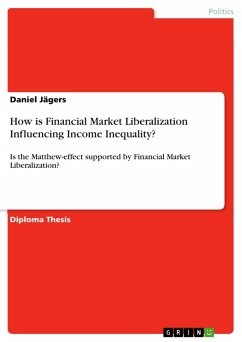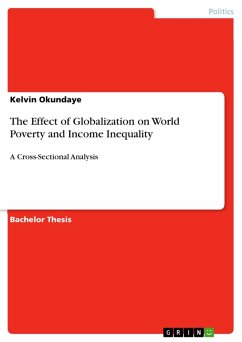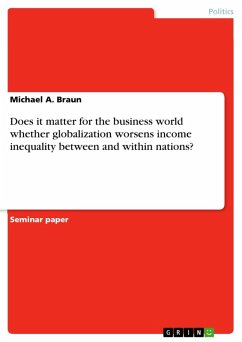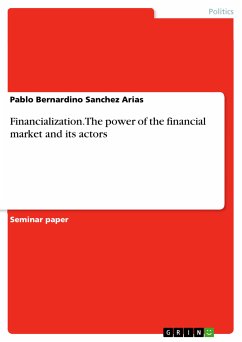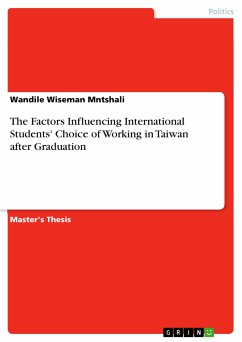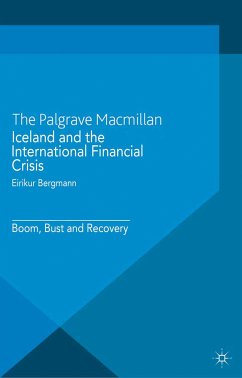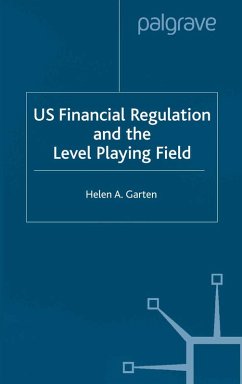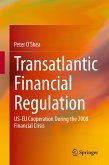Diploma Thesis from the year 2012 in the subject Politics - General and Theories of International Politics, grade: 1,0, , course: Maastricht Graduate School of Governance, language: English, abstract: Observing an increasing financial liberalization and income inequality during the last decades, this study investigates how the opening of financial markets is influencing income inequality. Operationalizing the research question, it focuses on capital account liberalization (CAL). The paper begins with an extensive literature review which recognizes the importance of a countries institutional quality and derives the following two hypotheses: CAL generally increases income inequality and CAL leads to an especially high increase in income inequality if the institutional quality is low. These hypotheses are empirically tested based on a panel data set covering 159 countries from 1996 - 2009. In the last decades the economies and financial systems of many countries liberalized and integrated with each other in order to benefit economically. However, at the same time income inequality and the gap between the extreme poor and the rich increased. The European Union is one of the regions with the most remarkable development regarding financial liberalization and integration. Some countries have been transformed within the last 25 years from centrally planned economies with controlled financial markets to market economies with open financial markets, integrated within the European Monetary Union. On the one hand this financial liberalization and integration is argued to be an important reason for economic growth. However, on the other hand it is strongly related to the Euro currency crises which is currently the main challenge facing the EU and is discussed daily on the news. The lower- and middle-classes in particular are protesting against immense financial supports for banks and investors on the one side and wage reductions, unemployment and social benefit cuts on the other. Can these inequalities be explained by the increasing liberalization of financial markets? Are they logical consequences of international financial liberalization and integration? This paper approaches these questions on a meta-level by answering the research question: How is Financial Market Liberalization Influencing Income Inequality? Before elaborating on this research question and explaining the investigated hypotheses it is explained what exactly is meant by financial market liberalization.
Dieser Download kann aus rechtlichen Gründen nur mit Rechnungsadresse in A, B, BG, CY, CZ, D, DK, EW, E, FIN, F, GR, HR, H, IRL, I, LT, L, LR, M, NL, PL, P, R, S, SLO, SK ausgeliefert werden.

